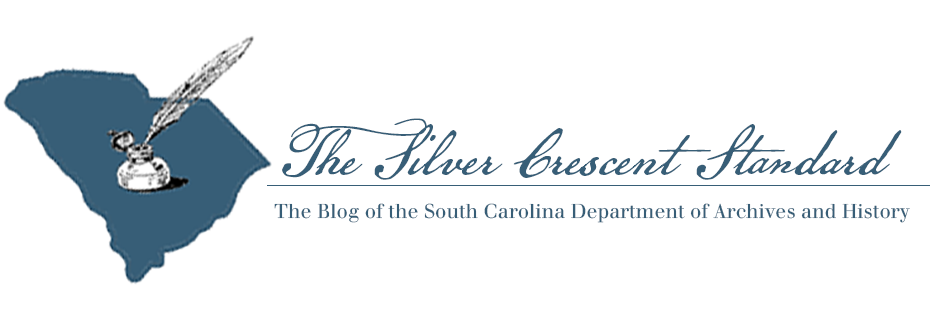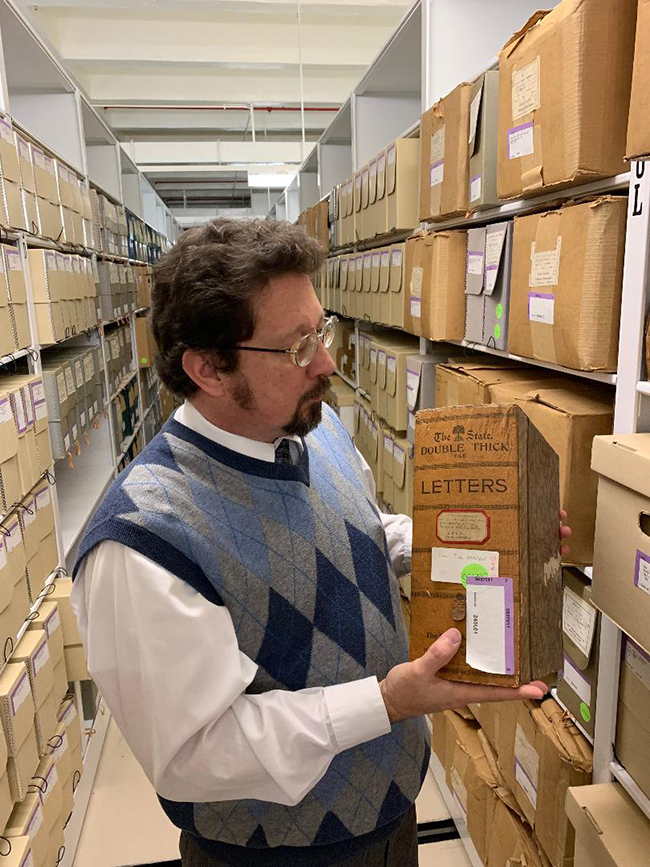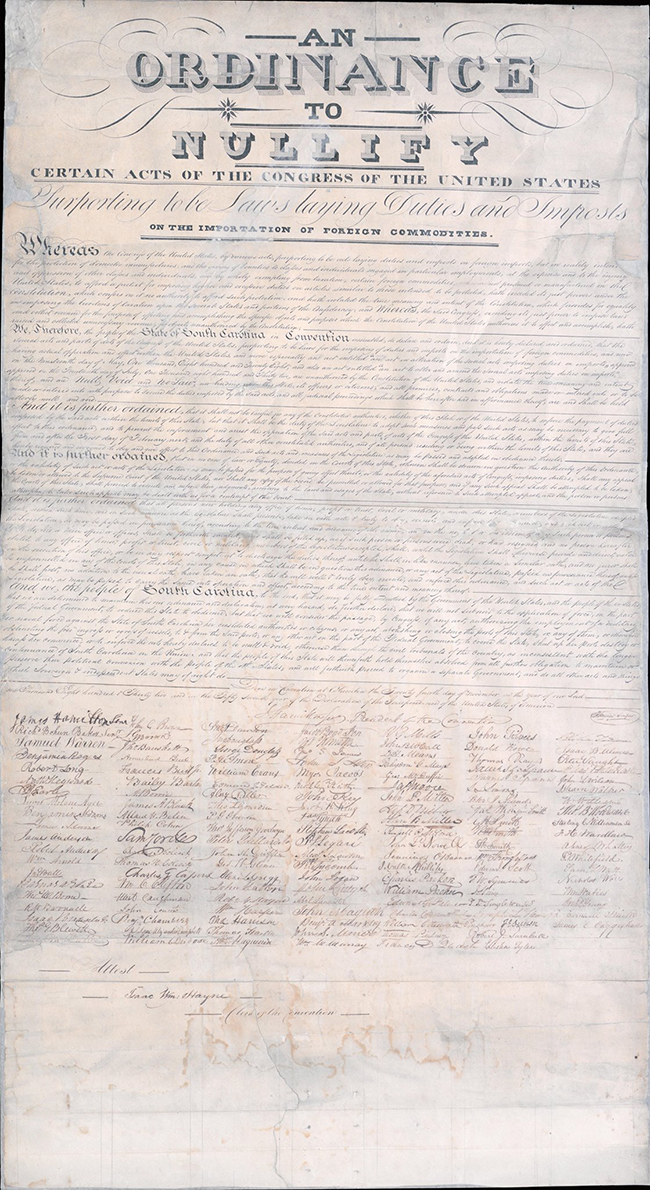

I was reared in Carroll County, Ga., in the northwestern Piedmont section of that state. I attended the Mount Zion schools, which were small and consequently quite intimate. Everyone knew everyone, their parents, their grandparents, and all of their cousins! While a high school senior, I began taking courses at nearby West Georgia College in Carrollton, Ga., and continued there after graduation where I obtained degrees in History and Political Science. After a year of reflection and saving, my masters program began at the University of South Carolina in the Department of Government and International Studies. During the undergraduate years, I had a lengthy career in a small grocery store and then learned many life lessons on a construction site. During graduate school I was a teaching assistant and I worked as a delivery driver for an auto windshield shop. My most interesting pre-Archives career stop was as a licensed tour guide in Charleston where I drove horse carriages and told completely accurate stories to tourists! I was hired at the South Carolina Archives in 1994 as the Night Staff Supervisor. I worked evening and weekend hours and had a wonderful crew of part time students to help keep things running. After four years, I moved to the regular daytime Reference Staff and some years after that I became the Supervisor of Reference Services the position I hold today.
What do you do as a Reference Supervisor?
As Reference Supervisor, I manage the Reference Room. We are open Tuesday-Saturday, 8:30-5:00, and we always have at least two archivists scheduled on the Reference Desk. I train new archivists in how to serve the public through the records and how to use our catalogues and finding aids to access those records. Most of our patrons are researching family history, so we tend to emphasize the records that can best help construct family trees. We also serve people who are doing historical research and try to recommend records that might bear fruit for the academic or student researcher. Legal and corporate documents are a large part of our collection, so we get a number of requests from attorneys and other persons needing charter information about corporations. The documents held by this agency are, in many cases, found nowhere else. Knowing what they are and how to use them to help our patrons is the primary goal of the Reference Department. We suggest records, explain computer programs and databases, and advise on making copies. I make sure that photocopy orders are processed, copied, and mailed as expeditiously as possible. While we cannot undertake general genealogical or historical research, we can research certain very specific types of records for patrons who cannot come to our facility. For example, we can provide copies of materials from our Online Records Index as well as other things like wills, estates, and military records for certain wars and conflicts. Generally, we research the question and send the patron a quote for copies showing the amount due if copies are desired. If we don’t find the answer, we will send an explanation advising them of that fact.
Why did you want to be an archivist?
I did not set out to be an Archivist. Like many, I went to college and got a degree with no firm plan for what came next. I worked a bit to make some money and then went to graduate school with a hazy notion of an academic career. That idea lost some luster, so I was back to “what’s next”? After the historical apprenticeship with the horses and the tourists, I was ready for something that was not so hot and smelly. When a friend told me a job was opening at the Archives, I applied right away. My father was a history teacher who absolutely lived and breathed history and genealogy. I was dragged from courthouse to courthouse and the Georgia Archives from the time I was five. I could remember how the names of long-dead relatives came to life in dusty will books and court cases. Having researched at the S. C. Archives all during graduate school, I knew that treasures lurked on every shelf of that building on Senate Street. I was truly honored to be chosen to help steward them for the people of South Carolina.
Do you have a favorite collection or document?
There are so many incredible documents in the Archives’ collection that it is difficult to choose one as my favorite. With my background in political science and particularly in political theory, I think that the Ordinance of Nullification may be the most interesting. Passed November 24, 1832, it nullified the Federal Tariffs of 1828 and 1832 within the bounds of the state. What is most fascinating about this document is recognizing what it actually represents. From the earliest days of the Republic, the line between State and Federal powers has been a constant question. Nullification comes directly from Jefferson and Madison’s Kentucky and Virginia Resolves of 1798-99. In their Resolves, they strove to protect their political friends from the overreach of the Federalists’ Alien and Sedition Acts. Later, during the War of 1812 and with Madison as President, many in the Federalist New England states considered actions up to and including secession because of their opposition to war with Great Britain. John C. Calhoun used all of these events and ideas to hone the doctrine of Nullification when South Carolina (and indeed many other agricultural states) found themselves economically disadvantaged by the protective tariffs of 1828 and 1832. Calhoun and the South Carolina Nullifiers attempted to find a way to protect their interests against what they regarded as Federal encroachment while remaining in the Union. Nullification was a step to avoid secession. The idea of nullification seemingly died after 1833 but the idea has regained popularity today. One has only to look at the many states that are passing laws at variance with Federal law recently to see that South Carolina’s Nullification Ordinance is just one milepost in the continued ebb and flow of State and Federal power.

What is your favorite part of the job?
The best part of my job is helping the public. While not all researchers get the answers they are hoping for, the satisfaction of helping someone find a document that they desperately need, or even just really want, makes for a rewarding day. After all, the documents in this facility belong to the people of South Carolina. We are just here to safeguard them for the citizens.
Who is your favorite historical figure or time period?
My favorite historical period is the Colonial era. The settlement of the colony offers an often unexpected complexity of motive, morals, ethnicity, and religion. The conditions that confronted everyone in this colony were so much more fluid and challenging than we understand. When things became more stratified in the antebellum period, the boisterous frontierism of the colonial past largely faded from our remembrance. And yet it was that earlier period that set the stage for many of the political and cultural traditions that have made South Carolina so unique.
